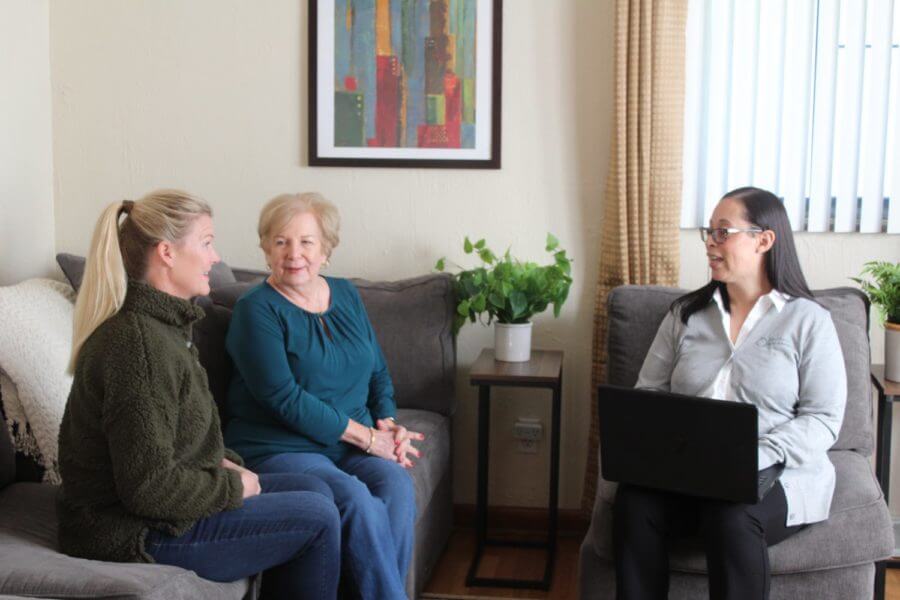The 21st century is the century of longevity. For the first time in history, it is reasonable for many of us to expect to live to over 100. But with the boon of longer lifespans also comes new challenges, including complex new situations and life roles.
One complexity that has grown along with the aging population is the role of family caregiving. According to AARP, as of 2020, over 50 million Americans are unpaid caregivers for relatives or friends. This cohort has often-misunderstood or -neglected complex challenges and needs for information.
The MIT AgeLab studies the experiences of family caregivers through its CareHive consortium, which conducts research using a panel of over 1,000 caregiver volunteer participants. Past CareHive research projects have included investigations into the language that caregivers use to describe their role, caregivers’ information-seeking, and caregivers’ efforts to balance caring for a loved one and taking care of themselves.
Businesses and nonprofits that aim to understand better and support family caregivers make up The CareHive consortium. One current member of CareHive is United Church Homes, a nonprofit faith-inspired senior housing company based in Ohio.
In March, United Church Homes launched a new service called Naviguide, which pairs family caregivers and their loved ones with a dedicated trained service coordinator. The development of Naviguide, United Church Homes executives say, was inspired by MIT research.
AgeLab research highlighted the family caregiver as the primary decision-maker in a household. “It’s not the older adult at this point who is the main customer,” says Dan Fagan, director of population health at United Church Homes. “It’s the oldest adult daughter,” who, most likely, is the one to take on caring for an aging parent, often in addition to managing a career and raising a family.
NaviGuide service coordinators do not provide direct in-home services; instead, they assist older adults with navigating health-care options, link them to community-based services, and identify and seek solutions to new problems and challenges.
Caregiving is as much a logistical challenge as it is a physical, emotional, and financial one, says Lisa D’Ambrosio, a research scientist at the MIT AgeLab. “Seeking information on where you should go for help is a job of its own,” she says. “And it’s often one that caregivers find themselves doing alone.”
Research from the MIT AgeLab also led United Church Homes to offer Naviguide as a flat monthly subscription service and to ensure that users could contact someone 24 hours a day. But most critically, the developers of Naviguide realized the importance of the human-to-human element.
“What we understood based on the research we saw was that trust is critical to the success of anyone coming into the lives and households of our users,” says Terry Spitznagel, vice president and chief growth officer of United Church Homes. That insight led to pairing each Naviguide customer with their own dedicated service coordinator — a person whom they will get to know and who, over time, will understand their caregiving situation. “Our customers might not even remember the name ‘Naviguide,’ but they will remember their service coordinator,” Spitznagel says.
Joseph Coughlin, director of the MIT AgeLab, says that Naviguide is an example of how human contact will remain at a premium even as health care technologies become more advanced. “New technologies will go a long way in filling the gaps in our care economy,” he says. “But there comes the point where high tech cannot replace high touch. Finding ways to bring approachable, personalized services to older adults and their caregivers, and doing it in a scalable way, will be a key part of the future of care.”
Naviguide is currently available in the Dayton and Columbus areas of Ohio, and United Church Homes plans to offer the service statewide in the next year. Employers have expressed interest in Naviguide as a potential employee benefits offering. And hospitals in the area are eyeing the program as a way to support outpatients and reduce rates of readmission.
According to AARP, almost 90 percent of older adults want to age in place — that is, to stay in their homes as long as they can. For United Church Homes, the trends portended by that statistic and its learnings with MIT spurred the company to expand its offerings.
“United Church Homes has evolved over the last 106 years, but our mission to help older adults has always been our focus,” says the Rev. Kenneth Daniel, the company’s CEO. “NaviGuide allows us to help the growing number of people who want to live independently longer but need assistance in navigating the support channels available to them.”
“Our aim has always been to serve seniors in the ways that they want to be served,” says Fagan. “That’s changing with the Baby Boomers and upcoming generations. Consumers really want something different. The aging industry is changing.”
Current and former family caregivers who are interested in participating in MIT research are invited to join the CareHive research consortium.

